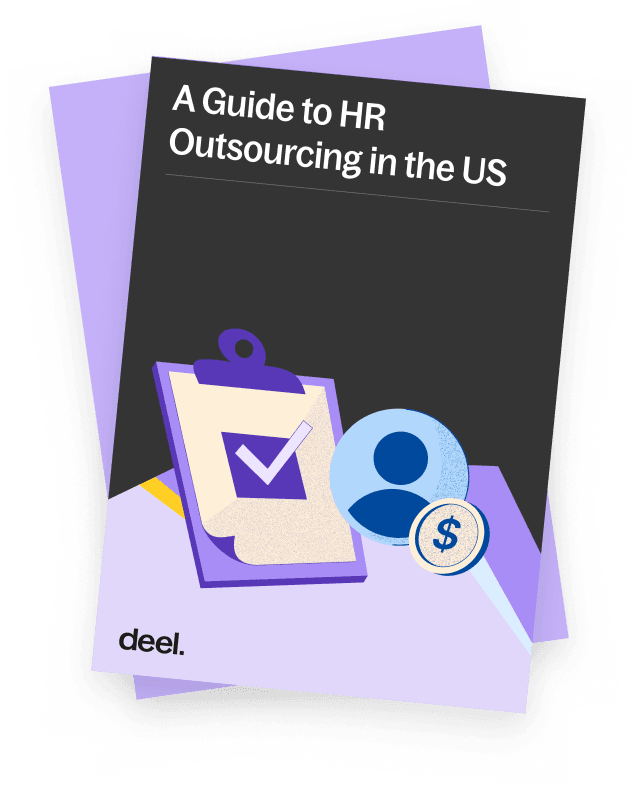Article
9 min read
Rhode Island TCI (Paid Leave) vs Unpaid Leave in 2025
PEO
US payroll

Author
Shannon Ongaro
Last Update
June 26, 2025

Table of Contents
Rhode Island unpaid leave
What Rhode Island unpaid leave covers
Eligibility and applicability
Job protection and benefits
How to apply
Rhode Island Parental and Family Leave and the FMLA
New Paid Family and Medical Leave program
Rhode Island Paid Leave (TCI) vs Unpaid Leave
Stay compliant in Rhode Island with Deel PEO
Key takeaways
-
In 2025, Rhode Island employees can receive up to 7 weeks of paid leave through TCI. Through RIPFMLA, eligible employees may take up to 13 weeks of unpaid, job-protected leave in a 24-month period for similar reasons.
-
Both paid and unpaid leave provide job protection, but TCI offers partial wage replacement for bonding or caregiving.
-
With Deel PEO, you can simplify Rhode Island leave compliance and manage payroll, benefits, and leave tracking in one place.
Managing parental and family leave in Rhode Island means keeping up with overlapping state and federal laws.
With Temporary Caregiver Insurance (TCI), the Rhode Island Parental & Family Medical Leave Act (RIPFMLA), and federal FMLA all in play, it can be tough to understand who qualifies for what, how to track leave accurately, and how to keep payroll and benefits on track during time off.
This guide breaks down what Rhode Island employers need to know about paid and unpaid leave—what’s required, what’s changing, and how to stay compliant without overburdening your HR team.
We’ll cover eligibility, job protection rules, and the practical steps to managing leave requests under TCI and RIPFMLA.
At Deel, we help companies navigate complex leave laws across the US and globally. Use this guide to build a compliant leave process so your team gets the support they need, and your business stays on track.
Rhode Island unpaid leave
Rhode Island’s Parental & Family Medical Leave Act (RIPFMLA) provides eligible employees with up to 13 weeks of unpaid leave in a 24-month period for the birth or adoption of a child or for a family member’s serious illness.
The law applies to employers with 50 or more employees and runs concurrently with the federal Family and Medical Leave Act (FMLA), so workers receive whichever protection is more favorable.
What Rhode Island unpaid leave covers
Rhode Island combines parental and family leave into one 13-week allowance usable over a 2-year period. Employees can “mix and match” qualifying reasons within that cap. For example, taking part of the leave for parental bonding and part for family caregiving, up to a total of 13 weeks.
| Leave type | Length of leave |
|---|---|
| Parental leave: Time off for the birth of an employee’s child or the adoption of a child (age 16 or younger) | 13 weeks (within 24 months) |
| Family leave: Time off for a serious illness of the employee or the employee’s close family member (such as a parent, spouse, child, or parent-in-law) | 13 weeks (within 24 months) |
Looking for information on Rhode Island Total Disability Insurance? Read our guide to Rhode Island TDI for a breakdown of the criteria, benefits, coverage, and more.

Free guide
A Beginner’s Guide to HR Outsourcing
Eligibility and applicability
Employee eligibility
Employees are eligible if they have been employed by the company for at least 12 consecutive months and worked an average of 30+ hours per week in that time.
Employer applicability
Rhode Island’s parental/family leave law applies to private-sector employers with 50 or more employees. Smaller employers are not required to provide this state leave, though employees may still have other protections (such as under the federal FMLA if applicable).
Job protection and benefits
During Rhode Island parental or family leave, an employee’s job is protected. When the leave ends, the employer must reinstate the employee to the same or an equivalent position with the same pay, benefits, seniority, and other terms of employment.
Employers also must maintain the employee’s group health insurance coverage on the same terms as if they were working.
Rhode Island allows an employer to require the employee to pay the health premium upfront for the leave period, but this amount must be refunded within 10 days of the employee returning to work.

How to apply
Employees should provide at least 30 days’ advance notice to their employer before starting parental or family leave, when the need for leave is foreseeable. If a medical emergency or unexpected situation arises that prevents early notice, the employee must inform the employer as soon as practicable. Employers are allowed to request a certification from a health care provider to verify the serious health condition and the expected duration of the leave.
Rhode Island Parental and Family Leave and the FMLA
Rhode Island’s leave law works in tandem with the federal FMLA. In practice, an eligible employee’s time off will run concurrently under both Rhode Island law and FMLA (rather than doubling the time off). This ensures the leave period counts against both entitlements simultaneously. When both laws apply, the employee effectively receives the most favorable provisions of each.
New Paid Family and Medical Leave program
In addition to the unpaid job-protected leave, Rhode Island offers a paid family leave benefit through its Temporary Caregiver Insurance (TCI) program.
Beginning January 1, 2025, eligible workers can receive up to 7 weeks of partial wage-replacement benefits under TCI, for time off to bond with a new child (birth, adoption, or foster placement) or to care for a seriously ill family member.
This is a state-administered insurance program funded by employee payroll contributions, and it provides around 60% of the employee’s wages during leave. On January 1, 2026, the paid benefit will increase to 8 weeks total.
- Jan 1, 2025: TCI paid leave maximum increased from 6 weeks to 7 weeks
- Jan 1, 2026: TCI paid leave maximum increases to 8 weeks
The TCI program is voluntary in the sense that employees must apply for benefits through the state, but all private employers are automatically covered (there is no opt-out or private plan alternative). Job protection during TCI leave is guaranteed for employees who qualify under Rhode Island’s leave law.
Compliance
Rhode Island Paid Leave (TCI) vs Unpaid Leave
| Feature | Unpaid Leave (RIPFMLA) | Paid Leave (TCI Program) |
|---|---|---|
| Employer Size | 50+ employees (private sector) | All employers (no size threshold; state-run benefit) |
| Duration | 13 weeks (within 24 months) | 7 weeks per year (8 weeks from 2026) |
| Wage Replacement | None (unpaid) | ~60% of wages |
| Job Protection | Yes – position and benefits must be restored | Yes – by law, with reinstatement rights for eligible leave-takers |
| Covered Reasons | Birth or adoption of a child; the employee’s own serious health condition; caring for a seriously ill parent, spouse, child, or parent-in-law | Bonding with a new child (birth, adoption, foster); caring for a seriously ill family member (includes broader family definitions like domestic partner, in-laws, grandparents) |
Stay compliant in Rhode Island with Deel PEO
New to managing parental and family leave in Rhode Island? With Deel PEO you can offload the complexity of compliance and let experts handle the process for you. We act as your trusted partner for HR, payroll, and benefits, ensuring your company follows Rhode Island leave laws while you focus on your business.
Here’s what Deel PEO provides:
- Fully in-house operations: Deel’s platform and team manage everything from leave tracking to payroll adjustments internally
- Expert payroll, HR, and benefits compliance: Our specialists stay on top of Rhode Island’s regulations (like parental leave and tax updates)
- Exclusive Aetna International health plans: Access health insurance options that cover your US W-2 employees globally
- 60+ domestic benefit plans: Offer competitive benefits packages tailored to US teams
- Trainings, written policies, on-demand HR support: Compliant policy templates, manager training, and expert guidance
Ready to simplify Rhode Island leave compliance? Book a 30-minute call with our experts to see how Deel PEO can support your team.
Disclaimer: This article is for informational purposes only and is not legal advice.

Shannon Ongaro is a content marketing manager and trained journalist with over a decade of experience producing content that supports franchisees, small businesses, and global enterprises. Over the years, she’s covered topics such as payroll, HR tech, workplace culture, and more. At Deel, Shannon specializes in thought leadership and global payroll content.












